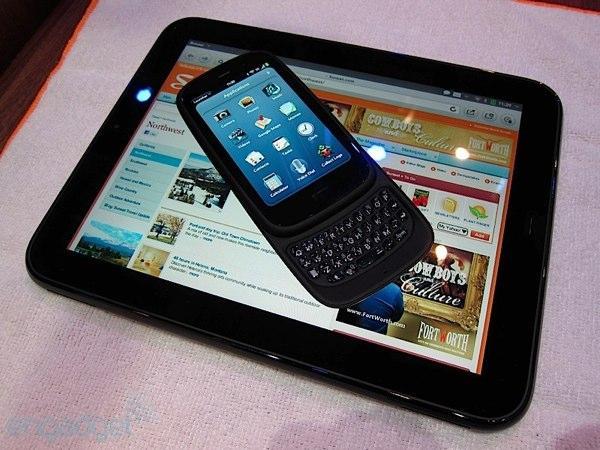
It seems almost as if there is a new Android device being released every week. In the past month, we have seen the Sensation 4G, LG Revolution, HTC Merge, Droid X2, LG Genesis and more reach consumer hands. On the opposing side of the fence, other companies are churning out devices much slower for smaller, upcoming platforms and it could be slowly taking its toll on them.
Back in February, HP announced the Veer, Pre 3 and TouchPad. Not long after in an interview with Wall Street Journal, HP CEO Leo Apotheker was asked about some of HP's strengths and weaknesses. Among several other things, Apotheker stated, “We need to fire up our innovation engine and get our products to market faster. It's not that we aren't innovative; it's that it takes too long to get to market.”
We are now four months down the road from Apotheker's statements and HP's official webOS device announcements and the TouchPad and Pre 3 are still weeks (or more) from release. HP's two flagship devices definitely should have been given priority and hit the market first. Instead, only one – arguably the least important and anticipated – of the three webOS devices has actually released. The Veer is a low-end smartphone aimed at a specific demographic. People with larger hands or those looking for a “muscle car” of smartphones aren't likely to go for the Veer.
Likewise, we heard rumors of Nokia and Microsoft teaming up to produce some Windows Phone 7 devices with some serious hardware; this was later confirmed in March. Seeing as these two companies have likely been in talks with this deal for much longer than we have known, I imagined we would see Nokia-made Windows Phone 7 devices long before Q4 this year. Instead of a Windows Phone 7 device like many were hoping for, Nokia just announced a MeeGo phone which, with the Microsoft deal, has an ominous future. It would have made more sense, from a software standpoint, to focus making the N9 a Windows Phone device instead of MeeGo.
In terms of Windows Phone 7 though, Nokia is not alone. There was talk of an HTC-made Windows Phone 7 device making its way to Verizon in "early 2011" back in November of 2010. The HTC Trophy finally hit Big Red's shelves on May 26th. During this time, countless Android phones entered the rumor stage and even hit shelves before the Windows Phone ever hit, easily taking from would-be WP7 buyers.
RIM hasn't been exactly speedy with their device releases either. The Bold 9900, a device that has been rumored for at least five years now, was officially announced at the very beginning of May with the promise of a release “later this summer.” The device will launch with RIM's latest version of their BlackBerry software, OS 7. This means that the Bold Touch will not receive an update for QNX, as the software (much like the tablet version) will require a dual-core processor. In essence, the longer RIM takes to launch their next iteration of devices, the less likely consumers are to jump on them, as they already have an expiration date.
All of these companies have at least two things in common: their debatable future in the mobile realm and a habit of announcing phones several months before they are officially available to buy. In this time, unlike the slew of Android phones that are perpetually launching, little is said or heard about the upcoming devices, effectively making them lose their luster.
As an example, Palm did the exact same thing with the original Pre two years ago. The original webOS device was announced at CES 2009 and was not released until June 6th. Rather than simply building hype for the mystery device, a lot of people gave up on the device and platform before it ever debuted. This was before any substantial competition existed like Android and Windows Phone 7 – who both blew by webOS with ease.
Now the market is much more volatile and fast-paced. As quickly as innovation takes place and phones are released in the current market, one month of lag time now can easily be equated to four or five months from before. The sooner they get these devices to shelves, the better. That said, releasing a product that isn't ready can be just as problematic, if not more, than releasing a phone that has ultimately lost its shine.
They are in a race against the clock and I feel as if some of these manufacturers are lollygagging and aren't taking the market quite serious enough. Reality is bound to hit as some time or another ...
Image via Engadget